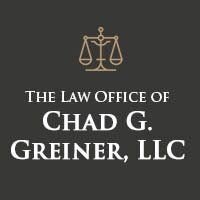Best Real Estate Due Diligence Lawyers in Georgia
Share your needs with us, get contacted by law firms.
Free. Takes 2 min.
Free Guide to Hiring a Real Estate Lawyer
Or refine your search by selecting a city:
List of the best lawyers in Georgia, United States
United States Real Estate Due Diligence Legal Questions answered by Lawyers
Browse our 1 legal question about Real Estate Due Diligence in United States and read the lawyer answers, or ask your own questions for free.
- What is owner of condo units obligation as far as damage to the condo below their unit.
- The unit above my condo is managed by a Property Management company, and it was rented. During the time it was rented, there were water leaks that damaged my ceilings, and the Management Company. refuses to fix the ceiling so that it matches the rest of the ceiling. Even though... Read more →
-
Lawyer answer by Horus Legal Sulotion
Thank you for sharing the details of your situation. Based on the circumstances you described, you may have grounds to escalate the matter legally. You can file a case to request the appointment of a government engineer from Dubai Municipality...
Read full answer
About Real Estate Due Diligence Law in Georgia, United States
Real estate due diligence is the process of thoroughly investigating a property before finalizing a purchase, sale, or lease. In Georgia, United States, due diligence is essential for both residential and commercial real estate transactions. It involves reviewing legal, financial, and physical aspects of the property to identify any risks or issues that could impact the transaction. The due diligence period and procedures in Georgia are guided by local statutes, customary practices, and contractual agreements between buyers and sellers. This process safeguards all parties by ensuring informed decisions are made prior to closing.
Why You May Need a Lawyer
There are various situations where consulting a lawyer for real estate due diligence in Georgia is necessary. Some common circumstances include:
- Unclear property titles or disputes regarding ownership - Concerns about unpaid taxes, liens, or encumbrances - Complex commercial transactions involving zoning or land use issues - Identification of problems during inspections (such as structural defects or environmental hazards) - Negotiating or reviewing purchase agreements, leases, or disclosures - Disputes with neighbors, such as boundary or easement issues - Reviewing homeowners' association rules, covenants, and restrictions - Understanding or handling short sales and foreclosures - Verifying compliance with local ordinances and building codes - Ensuring all required disclosures are provided and understood
A real estate attorney can offer advice, review documents, negotiate on your behalf, and help you avoid costly mistakes.
Local Laws Overview
Georgia real estate due diligence is shaped by state statutes, local regulations, and common industry practices. Key aspects of the law include:
- The Georgia Association of Realtors (GAR) contracts are commonly used and contain custom due diligence provisions. - Georgia is a “buyer beware” state, making buyer-conducted due diligence especially important. - Property disclosure requirements mandate sellers disclose known material defects, though buyers are still expected to investigate. - Title searches are crucial, as Georgia law requires clear proof of ownership. - Georgia is an “attorney closing state,” which means an attorney must supervise all real estate closings. - There may be local and municipal zoning regulations that impact property use. - Environmental law, including flood zone mapping and hazardous materials, can affect due diligence findings. - Condominium and homeowners' associations in Georgia must provide certain documents during the due diligence period. - The timelines for due diligence are often negotiable and specified in the contract.
Frequently Asked Questions
What is the due diligence period in a Georgia real estate contract?
The due diligence period is a negotiated timeframe, usually ranging from 7 to 21 days, during which the buyer can inspect the property, review documents, and withdraw from the purchase for any reason without penalty.
What should be included in a due diligence checklist?
A checklist typically includes title search, property survey, inspection reports, review of homeowner association documents, analysis of property taxes and assessments, review of zoning and land use, and confirmation of utilities and insurance requirements.
Can a buyer back out of a contract during the due diligence period?
Yes, in most standard Georgia real estate contracts, the buyer has the right to terminate the agreement for any reason during the due diligence period and receive their earnest money back.
Is a property inspection required by law in Georgia?
While not legally required, inspections are highly recommended. Lenders may require inspections as a condition of the loan, and buyers rely on them to uncover hidden defects.
Who pays for due diligence in Georgia real estate transactions?
Typically, the buyer is responsible for due diligence expenses, including inspections, surveys, and title searches. However, some costs may be negotiable in the purchase agreement.
What happens if issues are found during due diligence?
If problems are discovered, buyers can negotiate repairs or price reductions, request credits at closing, or choose to terminate the contract within the due diligence period.
Are sellers in Georgia required to disclose defects?
Yes, sellers must disclose known material defects. However, because Georgia is a “buyer beware” state, buyers are expected to conduct their own thorough investigations.
Do I need an attorney for a real estate closing in Georgia?
Yes. Georgia law requires that an attorney licensed in the state oversee every real estate closing to ensure legal compliance and protect the interests of all parties.
What is a title search, and why is it important?
A title search reviews public records to confirm the seller’s legal right to transfer ownership and to identify liens, encumbrances, or claims against the property.
How long does real estate due diligence take in Georgia?
The timeframe is agreed upon in the contract. Most due diligence periods last between one and three weeks, though more complicated transactions can require additional time.
Additional Resources
- Georgia Association of Realtors (GAR): Provides standard forms and guidance - Georgia Real Estate Commission: Governs licensing and regulatory standards for real estate professionals - Georgia Department of Revenue: Information on property taxes and assessments - County Clerk or Recorder’s offices: Public records and deed searches - Local planning and zoning departments: Zoning maps, land use, and permitting information - U.S. Environmental Protection Agency (EPA): Environmental compliance and hazards - Legal Aid organizations in Georgia: Assistance for qualifying individuals
Next Steps
If you are considering buying, selling, or leasing real estate in Georgia, it is important to prioritize due diligence. Begin by collecting property documents, conducting visual inspections, and ordering necessary reports. Consult a qualified Georgia real estate attorney early in the process. Attorneys can review your contract, supervise the closing, and ensure that all aspects of due diligence are handled thoroughly. Schedule a consultation, bring your questions and documentation, and discuss your objectives and concerns. Taking these steps will help you avoid common pitfalls and achieve a smooth transaction.
Lawzana helps you find the best lawyers and law firms in Georgia through a curated and pre-screened list of qualified legal professionals. Our platform offers rankings and detailed profiles of attorneys and law firms, allowing you to compare based on practice areas, including Real Estate Due Diligence, experience, and client feedback.
Each profile includes a description of the firm's areas of practice, client reviews, team members and partners, year of establishment, spoken languages, office locations, contact information, social media presence, and any published articles or resources. Most firms on our platform speak English and are experienced in both local and international legal matters.
Get a quote from top-rated law firms in Georgia, United States — quickly, securely, and without unnecessary hassle.
Disclaimer:
The information provided on this page is for general informational purposes only and does not constitute legal advice. While we strive to ensure the accuracy and relevance of the content, legal information may change over time, and interpretations of the law can vary. You should always consult with a qualified legal professional for advice specific to your situation.
We disclaim all liability for actions taken or not taken based on the content of this page. If you believe any information is incorrect or outdated, please contact us, and we will review and update it where appropriate.
Browse real estate due diligence law firms by city in Georgia
Refine your search by selecting a city.










